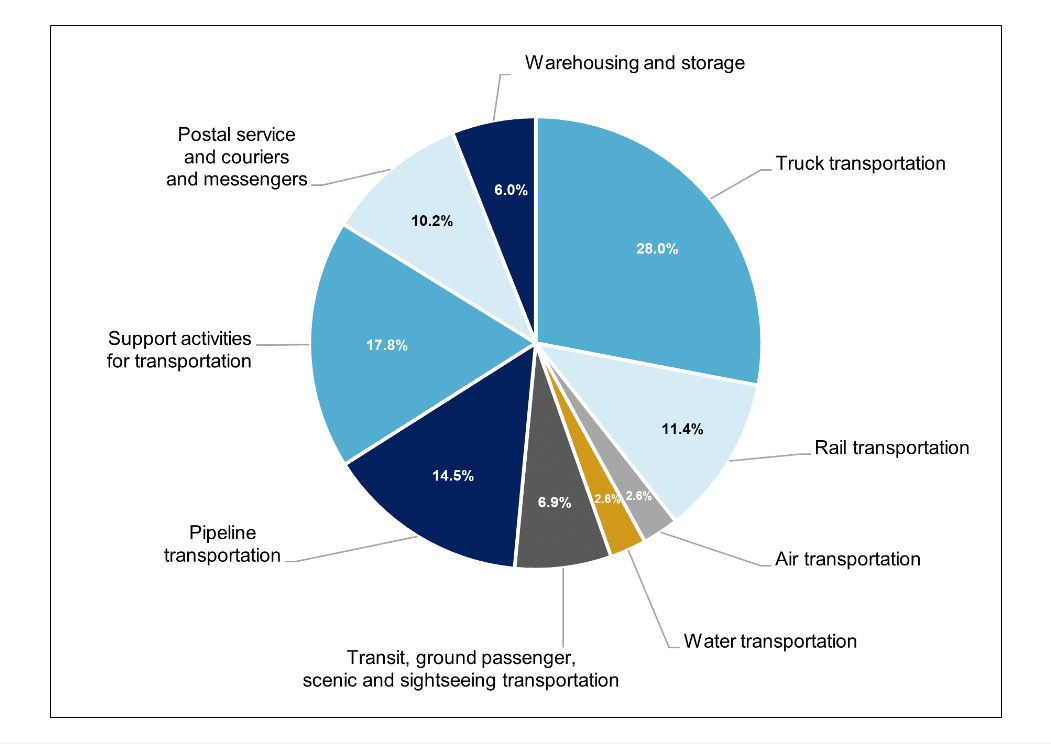Spectaire Holdings Inc., a global leader in air quality monitoring and emissions reduction technologies, has announced a significant development in response to the mounting financial and environmental challenges posed by escalating carbon taxes in Canada.
Spectaire specializes in delivering effective solutions that help companies reduce their carbon footprint while focusing on creating high-quality carbon credits.
The company proudly unveils the successful deployment of its groundbreaking AireCore technology within several prominent Canadian trucking fleets. This strategic initiative aims to offer a sustainable solution that aligns with national objectives for carbon emission reduction. It also provides a means to alleviate the economic burden imposed by tax legislation on the trucking industry.
Driving Change: Spectaire’s AireCore Revolutionizes Carbon Monitoring
The trucking sector stands as a vital pillar in Canada’s transportation supply chain. With an extensive road network spanning the nation, trucks serve as the primary mode of transportation for shipping goods across the country. Moreover, the trucking industry plays a pivotal role in facilitating trade with the United States, Canada’s biggest trading partner.
In 2021, the transportation and warehousing sector holds significant importance within the country’s economy, contributing 3.6% to its total gross domestic product (GDP) and employing over 5.2% of its workforce. Within this GDP sector, truck transportation offers the predominant mode of goods movement, constituting over 28% of the sector’s activity.
Distribution of the Transportation and Warehousing Sector’s 3.6% Share of Canada’s GDP

However, the trucking industry is also subject to Canada’s carbon pricing regulations. That could be due to the fact that within the transportation sector, recent data on Canada’s overall emissions indicates a persistent upward trend in greenhouse gas (GHG) emissions from medium- and heavy-duty vehicles (MHDVs).
-
These emissions account for 37% of total transportation emissions.
The country’s largest trucking alliance, the Canadian Trucking Alliance, has called on the government to suspend excise tax on diesel. CTA’s President Steve Laskowski remarked they’re doing their best to advance decarbonization in the sector. Still, the diesel engine remains to be the major method in the sector.
In the U.S., trucking companies are starting to shift to hydrogen fuel for long-haul trips. Companies like Nikola are investing in hydrogen technology to overcome infrastructure challenges and meet the growing demand for low-carbon energy. They believe that a revolution is underway where hydrogen holds the promise of a sustainable energy transition.
In Canada, CTA responded to the government’s proposal to provide a 3-year carbon tax exemption for home heating oil in specific regions, the alliance is calling for trucking-related adjustments to federal carbon pricing, too.
RELATED: Saskatchewan to End Carbon Tax on Natural Gas & Electric Heating
Addressing the Carbon Tax Surge in Trucking
As of April 2023, Canadian trucking companies experienced a notable surge in carbon pricing – a 30% increase to $65/tonne. This adjustment translates to an approximate additional carbon tax payment of 17 cents per liter of diesel fuel.
Susan Ewart, Executive Director of the Saskatchewan Trucking Association, emphasized the tangible impact of the carbon tax on truckers. She noted that a driver operating a truck equipped with a 300-gallon tank would incur an extra cost of around $193 per fill. With an average of 106 fills annually, Ewart estimated the annual carbon tax payments per truck to exceed $20,000.
Spectaire’s approach aims to facilitate industry-wide emissions reductions, aligning with the increased federal and provincial carbon taxes across Canada. The deployment of AireCore underscores Spectaire’s dedication to delivering innovative solutions for the environmental and economic challenges confronting the sector.
Brian Semkiw, CEO of Spectaire, acknowledged the financial pressures faced by the trucking industry. This is where AireCore’s ability to measure tailpipe emissions during transit offers a solution.
The technology’s capability enables companies to mitigate their emissions while providing financial relief through carbon offset programs and enhanced tax reporting mechanisms.
Watch here how the technology is installed and works.
Spectaire allows truckers to create technology-based carbon credits with both permanence and additionality with AireCore.
Clearing the Air and Transforming Trucking Industry Sustainability
Danny Bucciarelli, General Director of G&S Direct, emphasized the operational and financial advantages provided by AireCore. He further highlighted that.
“Our collaboration with Spectaire through AireCore not only signifies our dedication to environmental stewardship but also enhances our competitive positioning, facilitates potential tax benefits, and enables the generation of carbon credits.”
Carbon credits are integral to the emissions reduction infrastructure, but the market faces challenges due to insufficient precision and credit auditability. AireCore addresses this issue by enabling precise auditing of each credit, and when and where the reductions happened.
As such, it allows stakeholders to track emission changes and what specific gases were impacted. Management anticipates that the specificity and traceability of Spectaire’s carbon offsets will provide consumers with lasting value through carbon credits supported by measured results.
Spectaire emphasized the shared commitment to leveraging cutting-edge technology for meaningful emissions reduction, citing AireCore’s capability to provide precise, actionable emissions data as a cornerstone of its sustainability strategy within the trucking industry.
The introduction of AireCore by Spectaire represents a significant advancement at the intersection of technology, environmental stewardship, and economic strategy within the Canadian trucking industry. The initiative highlights the innovative capabilities of companies in the sector. More importantly, it establishes a new benchmark for how the sector can effectively address carbon tax challenges and environmental compliance.

